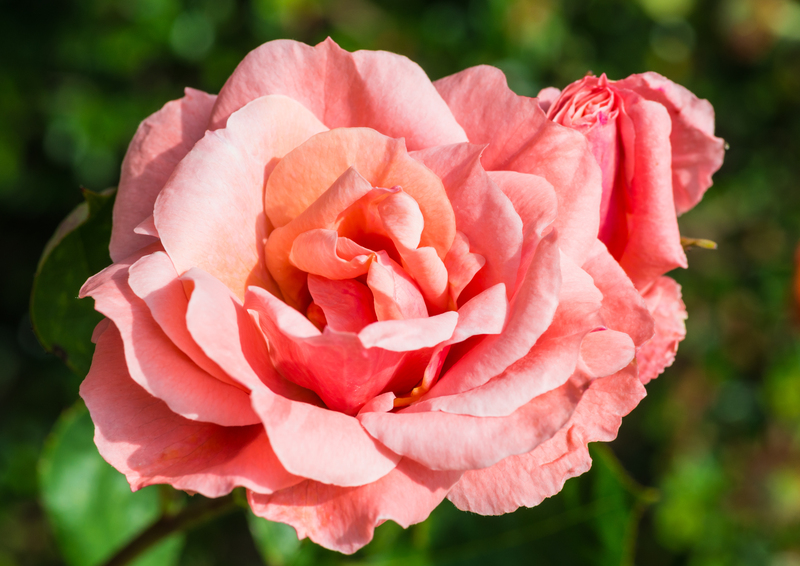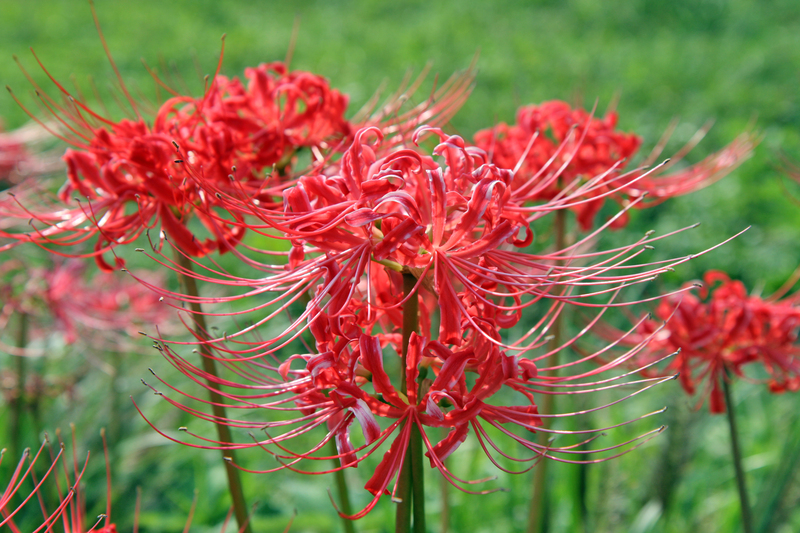Navigate Your New Hobby with 9 Expert Gardening Tips
Posted on 22/09/2025
Navigate Your New Hobby with 9 Expert Gardening Tips
Gardening is more than just a pastime--it's a rewarding experience that brings you closer to nature, improves mental wellness, and decorates your surroundings with vibrant colors and soothing greenery. If you're looking to embark on the journey of home gardening, understanding core techniques and best practices will help you flourish. Whether you're in a suburban backyard or an urban balcony, these expert gardening tips are tailored to help beginners lay the foundation for years of flourishing growth.

Why Start Gardening?
Gardening is a beloved activity across ages and cultures, and its popularity has only bloomed in recent years. But why exactly should you start gardening as a hobby? Here are a few compelling reasons:
- Mental and Physical Health: Studies show time in the garden reduces stress and increases happiness.
- Beautification: Lush landscapes and colorful blooms transform your living space.
- Sustainability: Growing your own vegetables and herbs can reduce your carbon footprint.
- Learning Experience: Whether it's botany or weather patterns, there's always something new to discover.
Now, let's dig into the top 9 gardening techniques for beginners that will help you navigate your new hobby with confidence and skill!
1. Understand Your Gardening Space
Before you plant a single seed, evaluate your gardening area. Is it a windowsill, balcony, community plot, or backyard? Take note of sunlight patterns, wind direction, and nearby structures. Understanding your microclimate--how sun, shade, soil, and wind interact--will set your garden project up for success.
Expert gardening tip: Observe your space at different times of the day for optimal plant placement.
How to Analyze Your Garden Space
- Sunlight: Track hours of direct sunlight and locate the shadiest spots.
- Wind: Note breezy areas which may need windbreaks or hardier plants.
- Soil: Assess the texture--clay, sand, or loam--for proper plant choices.
- Water Access: Where is your closest water source? Plan for ease of irrigation.
2. Start with the Right Tools
Investing in quality gardening tools can save time, effort, and frustration. At the bare minimum, every beginner should have:
- Hand trowel and spade
- Garden gloves
- Watering can or hose
- Pruner or garden shears
- Soil rake
Remember, good tools last longer and make navigating your new gardening hobby significantly more enjoyable.
3. Choose the Best Plants for Beginners
When starting out, select plants adapted to your local climate and soil. Some plants are forgiving and perfect for those new to home gardening. Here are a few easy starters:
- Marigolds: Bright and resilient annuals.
- Basil: A favorite herb for sunny spots.
- Lettuce: Quick to grow in cool seasons.
- Succulents: Great for busy beginners.
- Tomatoes: Productive and satisfying when ripe!
Pro tip: Start small with two or three plant varieties, and expand your garden as you gain experience.
4. Nurture Your Soil
Healthy plants begin with healthy soil. Soil quality determines how well your plants will grow, so invest time in creating the perfect foundation.
- Test Your Soil: Use affordable kits to check pH and nutrients.
- Add Compost: Organic matter provides essential nutrients and improves drainage.
- Mulch: A layer of mulch retains moisture, regulates temperature, and discourages weeds.
As you navigate your new gardening hobby, remember: improving soil health is an ongoing journey--not a one-time fix!
5. Master Watering Techniques
Overwatering and underwatering are two common beginner mistakes. Learning how, when, and how much to water is essential. Most garden plants prefer even moisture with periods to dry out in between.
- Check before you water: Stick your finger an inch into the soil; water if it feels dry.
- Water at the base: Moistening foliage promotes disease--focus on the root zone.
- Morning watering: Helps avoid evaporation and fungal diseases.
- Mulch aids: Retain precious water with mulch layers around your plants.
Experiment and adjust! And remember, local weather and soil will dictate your watering schedule more than the calendar does.
6. Learn Proper Planting and Spacing
One crucial gardening tip for newcomers is avoiding overcrowding. Crowded plants compete for nutrients, sunlight, and water, resulting in stunted growth. Carefully follow seed packet or nursery label instructions for spacing, and give your plants room to breathe.
Expert insight: Plan your garden layout in advance--sketch it out if helpful.
Tips for Effective Planting
- Digging: Don't dig too deep or shallow--roots must establish comfortably.
- Firm soil gently: Secure new additions without compacting their growing medium.
- Label plants: Place markers for easy identification and care instructions.
7. Prioritize Pest Management
Unwanted insects and curious critters are unavoidable. Integrated pest management (IPM) is a smart, environmentally friendly way to keep your plants healthy:
- Identify first: Not all bugs are bad! Many are helpful pollinators or pest predators.
- Prevention: Healthy, well-spaced plants are less prone to infestations.
- Natural controls: Use neem oil, insecticidal soap, or companion planting before resorting to chemicals.
- Physical barriers: Netting or row covers keep larger pests at bay.
Take the time to observe your garden regularly--early action is the best defense against outbreaks.
8. Practice Regular Maintenance
Maintenance might sound like a chore, but it's the heart and soul of a thriving garden. Routine care tasks include:
- Weeding: Remove weeds before they seed and spread.
- Pruning: Trim dead or diseased branches to encourage growth and air flow.
- Fertilizing: Use the right fertilizer in appropriate amounts--don't overdo it.
- Deadheading: Remove spent blooms for more vigorous flowering.
Keep a gardening journal to track plant progress, bloom times, and care notes--an invaluable tool as your hobby grows!
9. Stay Curious and Keep Learning
The best gardeners are perpetual students. There's always a new species to try or a fresh technique to master. Read, attend workshops, exchange tips with neighbors, and join gardening clubs.
With countless websites, apps, forums, and books dedicated to navigate gardening as a beginner, you never have to grow alone.
- Connect with local gardening groups--invaluable for region-specific advice.
- Subscribe to gardening magazines and blogs for ongoing inspiration.
- Document successes and failures for future reference.
Bonus Gardening Tips for Beginners
Beyond the basics, here are a few more nuggets of wisdom to help you navigate the early stages of your new hobby:
- Patience pays off: Plants need time--resist the urge to over-fuss.
- Observe and adapt: Nature is unpredictable. If a plan fails, try something new next season.
- Start a compost bin: Turn household waste into garden gold!
- Prioritize native plants: They require less water, fertilizer, and care.
By tapping into expert knowledge and enjoying every learning moment, your garden will not just survive--it will thrive.
Final Thoughts - Grow with Confidence
*Gardening* offers the perfect blend of science and art, patience and reward. As you apply these expert gardening tips for beginners, remember: every mistake teaches, every sprout amazes, and every flower is a triumph.
Ready to dig in? Let your garden be a canvas for your creativity and a sanctuary for your soul.
Summary of Key Gardening Tips:
- Analyze and understand your space
- Choose the right tools and plants
- Build healthy soil and master watering
- Ensure proper spacing and pest control
- Maintain regularly and keep learning
Navigate your new gardening hobby with confidence--and enjoy the many rewards waiting in every leaf, flower, and vegetable you grow!

Frequently Asked Questions
What are the best vegetables for beginner gardeners?
Great starter vegetables include lettuce, radishes, carrots, and bush beans. These grow quickly, require minimal care, and are suitable for most gardens.
How often should I water my plants?
Most garden plants do well with 1-2 inches of water per week, but always check soil moisture and adjust for heat and rain.
Is gardening expensive?
While it can be as lavish as you choose, starting small with seeds, recycled containers, and homemade compost keeps costs low.
How can I garden in a small space?
Utilize vertical planters, hanging baskets, and container gardens to maximize space. Herbs, lettuces, and compact flowers thrive on balconies and patios.
Embrace Your Green Thumb Today
Now is the perfect time to embrace your new gardening hobby. Start with these 9 expert gardening tips and watch your garden--and knowledge--grow every season. Happy gardening!

